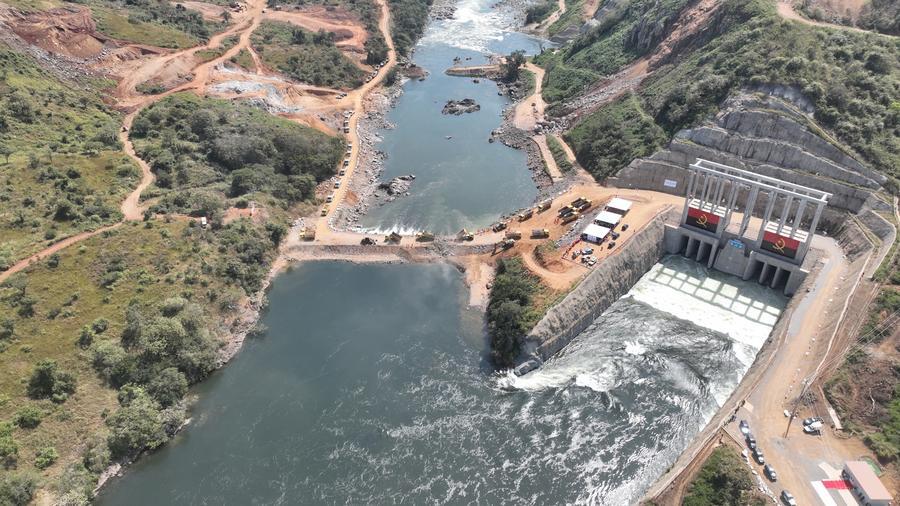By Sumaya Chowdhury
As a poignant testament to the enduring spirit of mutual cooperation and commitment that defines Sino-Angolan relations, President Joao Lourenco of the Republic of Angola has embarked on a momentous four-day visit to China at the invitation of Chinese President Xi Jinping. This marks his second visit to China since assuming power in 2017, underscoring the weight Angola places on these ties.
The enduring Sino-Angolan partnership is deeply rooted in a shared history of anti-imperial and anti-colonial struggles. This history of shared struggle has not only laid the cornerstone for a relationship characterized by mutual trust and respect but has also forged a deep sense of solidarity between the two nations. Subsequently, their shared pursuits of economic revitalization and modernization have further strengthened this bond, leading to a journey marked by win-win cooperation and synergy throughout the four decades of bilateral relations.
Since China and Angola established diplomatic relations in January 1983, their bilateral ties have undergone several phases of transformation. The roots of the Sino-Angolan ties can be traced back to colonial Angola. However, it was Angola's post-civil war reconstruction era where China's generous engagements with the conflict-ravaged nation played a predominant role in shaping the current robust trajectory of ties.
Long-toiling under the exploitative Portuguese colonial rule, the southwestern African nation secured independence in 1975, only to be then plunged into a protracted civil war. The nearly three-decade-long civil unrest inflicted profound economic devastation, ravaged almost every facet of the Angolan economy, perpetuated cycles of poverty, and deprived its people of access to essential services. In the aftermath of the civil war, Angola was in dire need of financial capital and technical input to both service its heavy debt burden to Western countries and translate its natural resource wealth into better economic conditions and development.
But despite its fervent appeals for financial support from the International Monetary Fund and the Paris Club nations, Angola's request for financial and economic resuscitation remained elusive. Thanks to China's generous assistance, Angola ushered in a period of rapid economic development. Increasingly, it emerged as a beacon of China's revitalized economic and diplomatic outreach to the African continent in the 2000s.
As the foremost beneficiary of Chinese financing in Africa, Angola has received a staggering $45 billion from Chinese lenders. These funds were meticulously allocated to address two pivotal challenges. Firstly, those funds were strategically invested in boosting state capacity to harness its abundant natural resources, notably oil, to drive economic growth and development.
The outcomes were nothing short of remarkable, with oil production increasing by 147 percent within a decade from 2000. The state was able to translate this meteoric rise in oil production and petro revenues into GDP growth and economic recovery.
Secondly, a substantial portion of those funds went into addressing Angola's burgeoning socio-economic problems, most notably fostering qualitative enhancements of social and human capital.
Numerous socio-economic projects targeting sectors like transportation infrastructure, power production, housing, education, etc., were implemented over the decades. Chinese companies contributed to the restoration or construction of 2,800 kilometers of railways, 20,000 km of roads, over 100,000 housing units, more than 100 schools, and over 50 hospitals in Angola.

This aerial photo taken on May 20, 2023 shows a ceremony for the temporary diversion of the Cuanza River at the site of the Chinese-built Caculo-Cabaca Hydropower Station in Cuanza Norte province, Angola. [Photo/Xinhua]
China's iconic infrastructural endeavors, such as the $4.1 billion Caculo Cabaca hydropower project, the 1,344 kilometers Benguela Railway, and the $3.5 billion Kilamba Kiaxi social housing project, were hailed by Angolan leadership as "sources of national pride." At the same time, those testify to the core tenet of Sino-Africa cooperation: fostering economic prosperity and social development through targeted investment and win-win cooperation.
Moreover, as Angola has embarked on a process of economic diversification, China stands ready to help Angola learn from its own development model and provide opportunities from its mega market.
For the last two decades, Chinese investments and all-around engagement with Angola have substantially addressed its primary economic, infrastructural, social, and developmental challenges, propelling the nation for further qualitative development. China's growing emphasis on "high-quality development" at home and in its infrastructural programs abroad hold immense prospects for achieving the qualitative leap in Sino-Angolan ties.
Sumaya Chowdhury, a special commentator on current affairs for CGTN, is an independent columnist and freelance journalist based in Dhaka, Bangladesh.

 中文
中文



